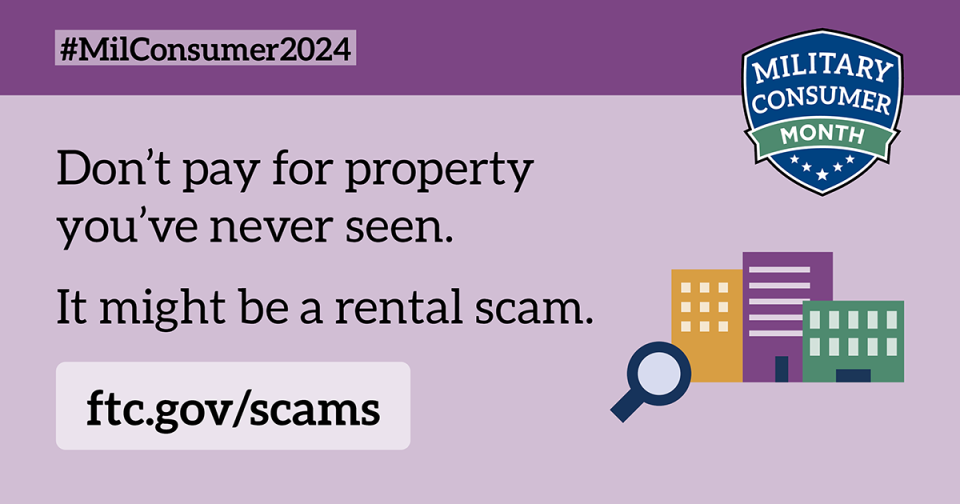Military families move regularly, sometimes every two to three years. So you may find yourself checking out new digs as you plan a move to another duty station. That’s when you could run into a rental scam, which can be hard to spot, but here are some clues.
Rental listing scams can unfold in a few ways. Scammers can steal legitimate rental listings for real places and pretend to be the landlord. Sometimes scammers use social media groups to post made-up listings for places that aren’t actually available to rent — and sometimes for place that don’t even exist. In either case, the scammer will rush you into paying an application fee, deposit, and/or first month’s rent, and promise to get you the keys right away — but instead, they’ll disappear. You’ll be left without your money and with no place to move into.
Take these steps to avoid losing time and money to a rental listing scam.
- Search online for the rental’s address, plus the name of the property owner or rental company listed. Do other ads come up for the same address? Maybe with a different owner or rental company name? Those are signs of a scam.
- Look up the rental company’s website and check to see if the property is listed there, too. If it isn’t, the listing is likely a scam.
- Pay by credit card, which gives you the best protections. Scammers want you to pay in ways that make it hard to get your money back — like with gift cards, wire transfers, payment apps like Apple Pay, CashApp, PayPal and Zelle, or cryptocurrency.
- Don’t pay for a property you’ve never seen. And never pay someone you’ve never met in person. If you can’t see the apartment or sign a lease before you pay, see if a friend can see it for you, or keep looking.





